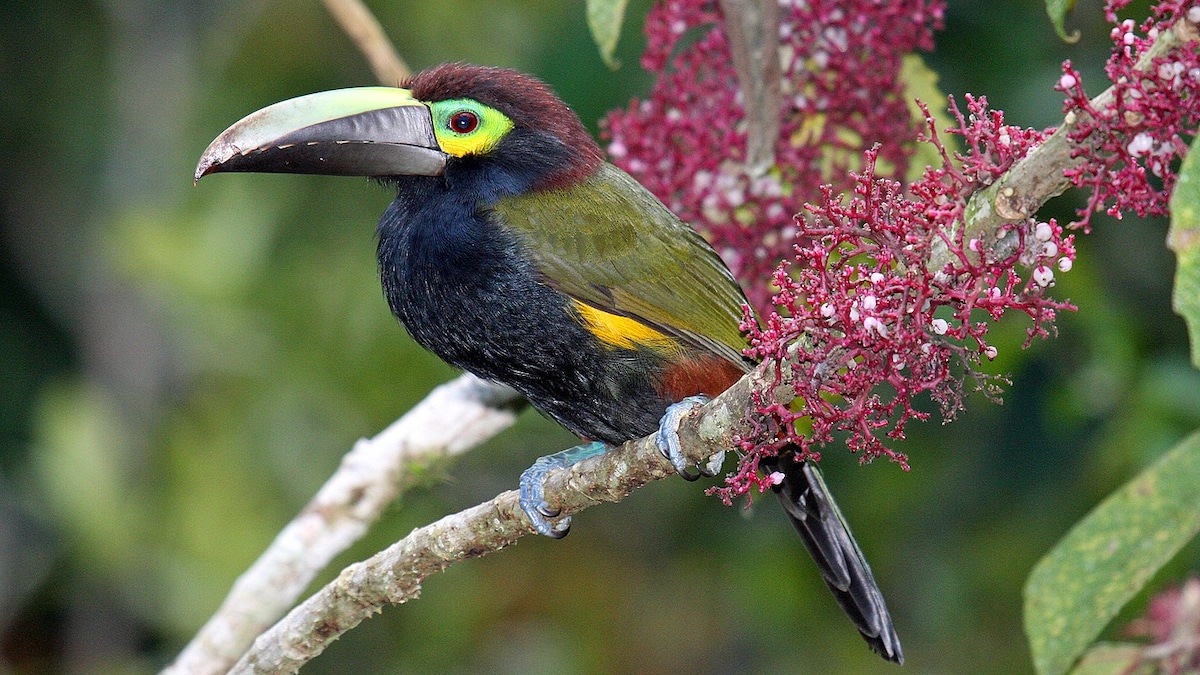
Loss of Birds and Mammals Makes It Harder for Plants to Adapt to Climate Change

Biodiversity loss and the climate crisis could interact to drive plant species to extinction.
A new study published in the journal Science Thursday found that a loss of seed-dispersing bird and mammal species has already cut the ability of plants to follow a changing climate to their ideal range by 60 percent, and this may drive some species to extinction.
“[B]irds and mammals are often hit hard by habitat loss and direct exploitation but they play an important role as seed dispersers,” study lead author and Rice University ecologist Dr. Evan C. Fricke told the Guardian. “We wanted to understand what the decline of birds and mammals means for plants’ ability to keep pace with climate change.”
More than half of all plant species rely on animals to disperse their seeds, the study authors wrote in The Conversation. This usually happens when animals eat a plant’s fruits and then defecate the seeds as they move along. This process helps plants to shift their range as climate conditions change, but rapid biodiversity loss means there are fewer animals around to carry the seeds to safer ground.
The consequences of this are difficult to study, however, because only a small percentage of seed-dispersing animals and their charges have been studied directly, and usually only in one particular ecosystem.
“Like most researchers, I had studied declines of seed dispersal on a pretty small scale, like on the island of Guam,” Fricke told UPI. “But seed dispersal is also important for this global phenomenon that is climate change, and seed dispersers are declining on a global scale.”
To understand how this reduction in seed dispersers might impact plants worldwide, the research team looked at previous studies focusing on birds and mammals that eat fleshy fruits, according to The Conversation. They used the studies to assess which birds and mammals eat which fruits, how far they move the seeds and if their digestive processes make it easier or harder for the seeds to sprout.
They then used machine learning to determine speed dispersal patterns for similar species to the ones in the studies.
“For example, data on a medium-sized thrush in North America could help us model how a medium-sized thrush species from Asia dispersed seeds, even if the Asian species wasn’t studied directly,” the study authors wrote in The Conversation. “Using our trained model, we could estimate seed dispersal by every bird and mammal species – even rare or extinct species for which there isn’t any species-specific data on the seed dispersal process.”
Finally, they compared seed dispersal currently to what would have happened if animal species had not gone extinct or lost parts of their range. They found that dispersal was already 60 percent reduced and would fall a further 15 percent if endangered seed dispersers like bonobos, savanna elephants and helmeted hornbills went extinct.
“This study shows that these baseline dispersal functions have drastically shrunk since humans conquered all islands and continents, leaving plants little adaptive resilience against the current ravages of climate change,” professor Carlos Peres of the University of East Anglia, who was not part of the study, told The Guardian.
However, the authors proposed solutions to help boost plant dispersal and climate resilience, including conserving habitats important for seed dispersers and their plants. It’s also important to emphasize the conservation of larger seed dispersers like elephants, which can carry seeds farther.
“While reforestation has been heralded as an important nature-based solution for mitigating climate change, this study underscores the importance of wildlife conservation and rewilding as a nature-based strategy for reducing the impacts of climate change on biodiversity,” study co-author and Iowa State University ecologist Haldre Rogers told UPI in an email. “Assisted migration is not feasible on a global scale. Therefore, conservation measures that protect and restore large-bodied seed dispersers are critical for facilitating movement of plant species to suitable habitat.”

 233k
233k  41k
41k  Subscribe
Subscribe 